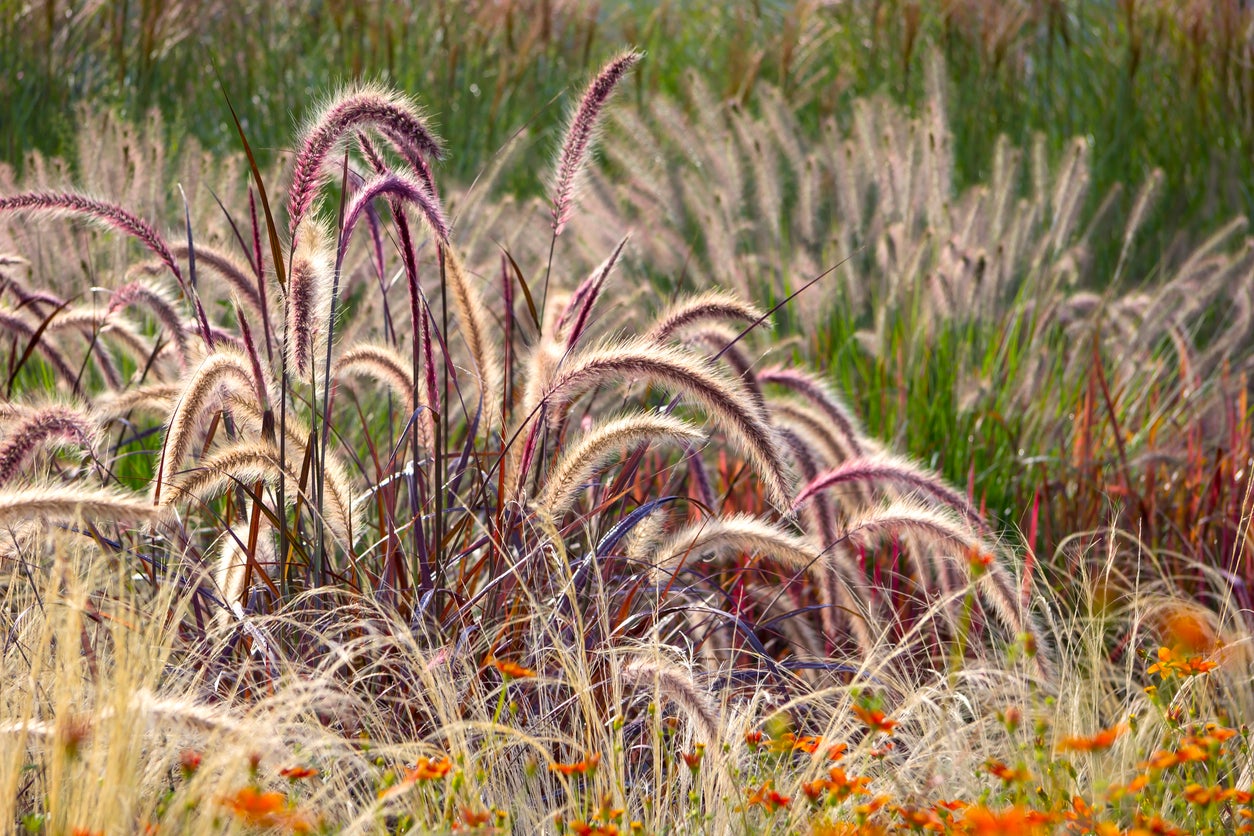Ornamental Grass Feeding Needs: Do Ornamental Grasses Need Fertilizing

Ornamental grasses are low maintenance perennials that add interest to the landscape year round. Because they require minimal care, a reasonable question to ask is “do ornamental grasses need fertilizing?” If so, what are the feeding needs for ornamental grass plants?
Should I Feed my Ornamental Grasses?
Many ornamental grasses have become popular staples in the colder hardiness zones both for their cold tolerance and visual interest throughout the fall and winter seasons. Generally, ornamental grasses are not cut back until the early spring, which allows the grassy fronds to add some aesthetic value during a time when most plants are dormant.
Once established and in their second year from planting, ornamental grasses require very little maintenance beyond occasional division and cutting back, or cleaning them up in the early spring. But do ornamental grasses need fertilizing?
Not really. Most grasses prefer to live sparsely with fairly low levels of fertility. Fertilizing ornamental grasses with the same food you use on the lawn might seem logical, but think about what happens when the lawn gets fertilized. The grass grows very rapidly. If ornamental grasses go on a sudden growth spurt, they tend to flop over, losing their aesthetic value.
Ornamental Grass Feeding Needs
Feeding ornamental grass plants a supplement of nitrogen may, indeed, result in plants that flop over, but giving them just a touch of fertilizer can increase their size and the number of seedheads they produce. If your grasses take on a faded color and look less than vigorous, a small amount of fertilizer will perk them up.
When fertilizing ornamental grasses, remember that less is more; err on the sparse side when feeding the plants. A general rule of thumb is to apply ¼ cup (59 ml.) per plant in the spring as growth starts back up. You may also choose to apply a slow release fertilizer in the spring and water it in well.
Again, allow the color and vigor of the plant to tell you if it needs any supplemental food. Most grasses do very well when they are more or less ignored. The exception is Miscanthus, which does better with additional fertilizer and water.
Gardening tips, videos, info and more delivered right to your inbox!
Sign up for the Gardening Know How newsletter today and receive a free copy of our e-book "How to Grow Delicious Tomatoes".
The best option is to lightly amend the soil with an organic fertilizer (rotted manure, compost, leaf mold, mushroom compost) at the time of planting to feed the plant slowly over a long period of time.

Amy Grant has been gardening for 30 years and writing for 15. A professional chef and caterer, Amy's area of expertise is culinary gardening.
-
 Looking For Plants To Give You The Soft And Fuzzies? Try These 5 Fuzzy Leaf Plant Options
Looking For Plants To Give You The Soft And Fuzzies? Try These 5 Fuzzy Leaf Plant OptionsLovers of texture, drama, silver foliage and tactile plants will adore these special sensory garden additions. These fuzzy leaf plant options will leave you all aglow
By Susan Albert
-
 Get Ready For A Summer Of Hummers! Grow These Full Sun Hummingbird Plants and Flowers
Get Ready For A Summer Of Hummers! Grow These Full Sun Hummingbird Plants and FlowersIf you’re lucky enough to enjoy a sunny backyard, make sure you are maxing out on your pollinator opportunities and grow these full sun hummingbird plants and flowers
By Tonya Barnett